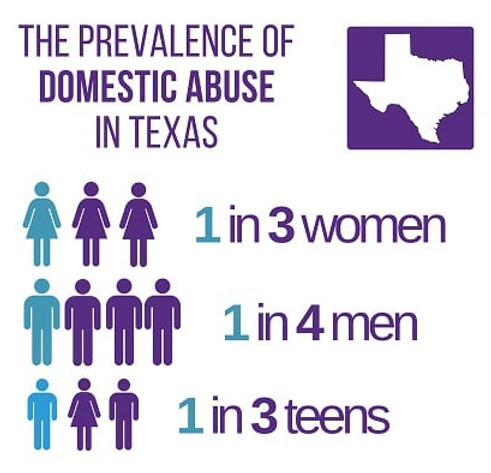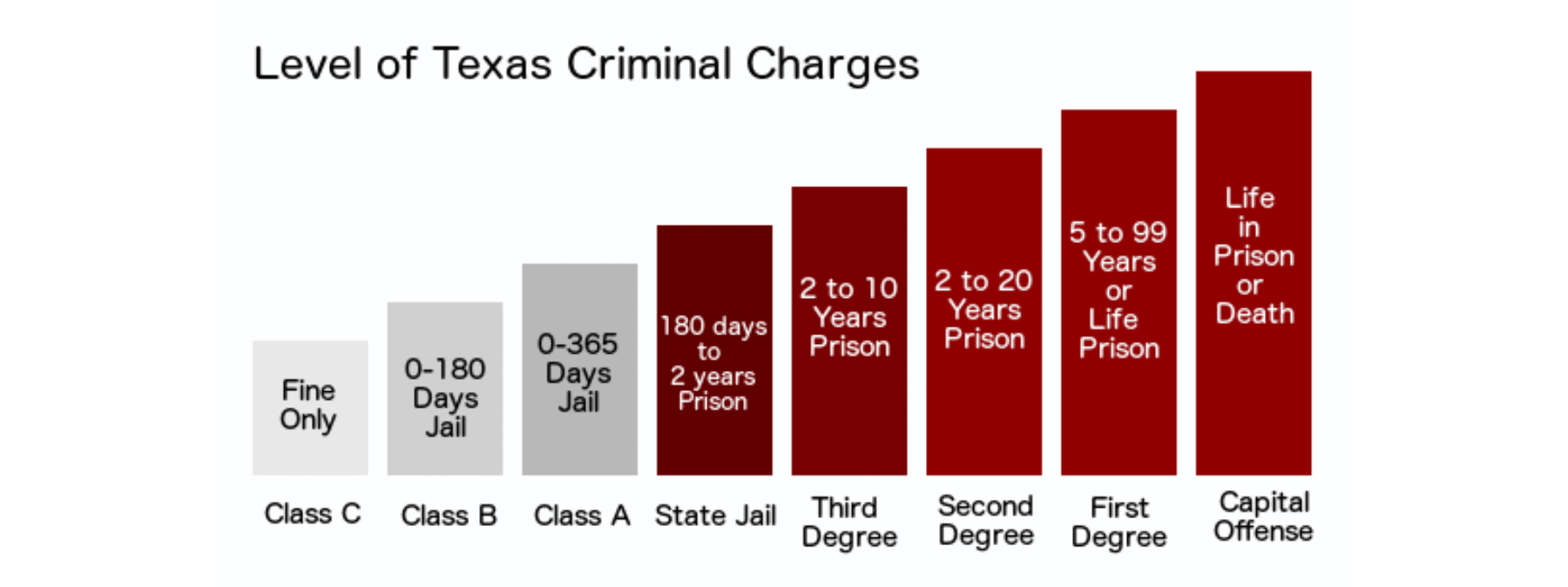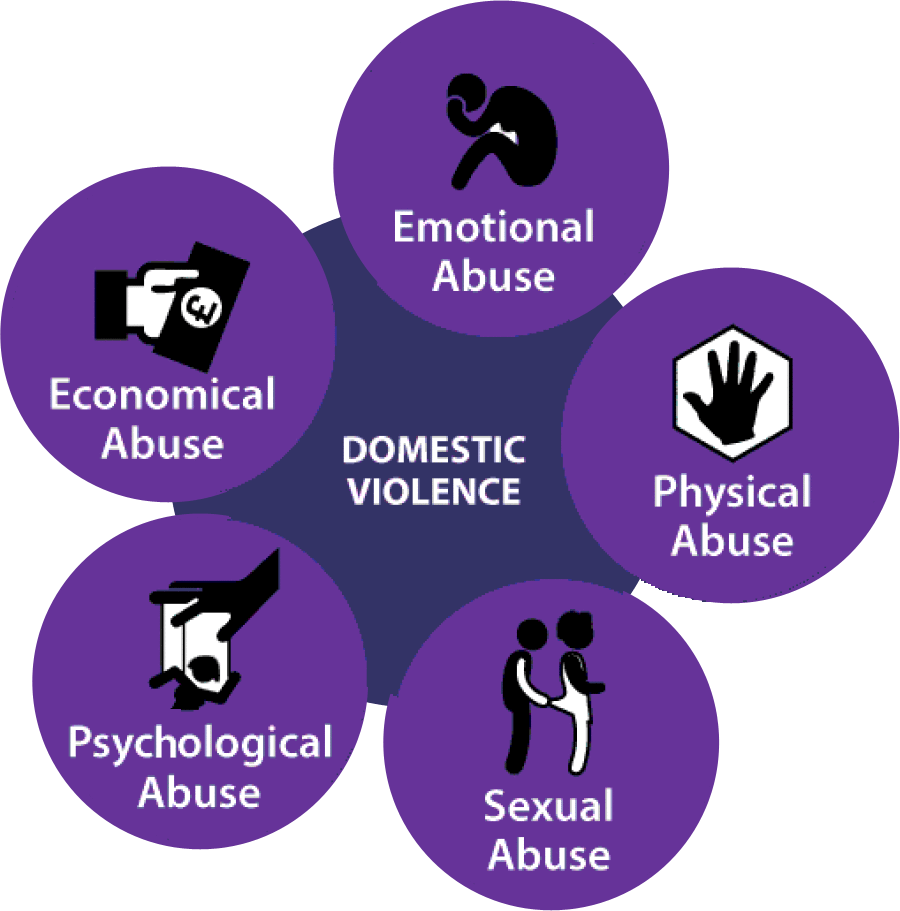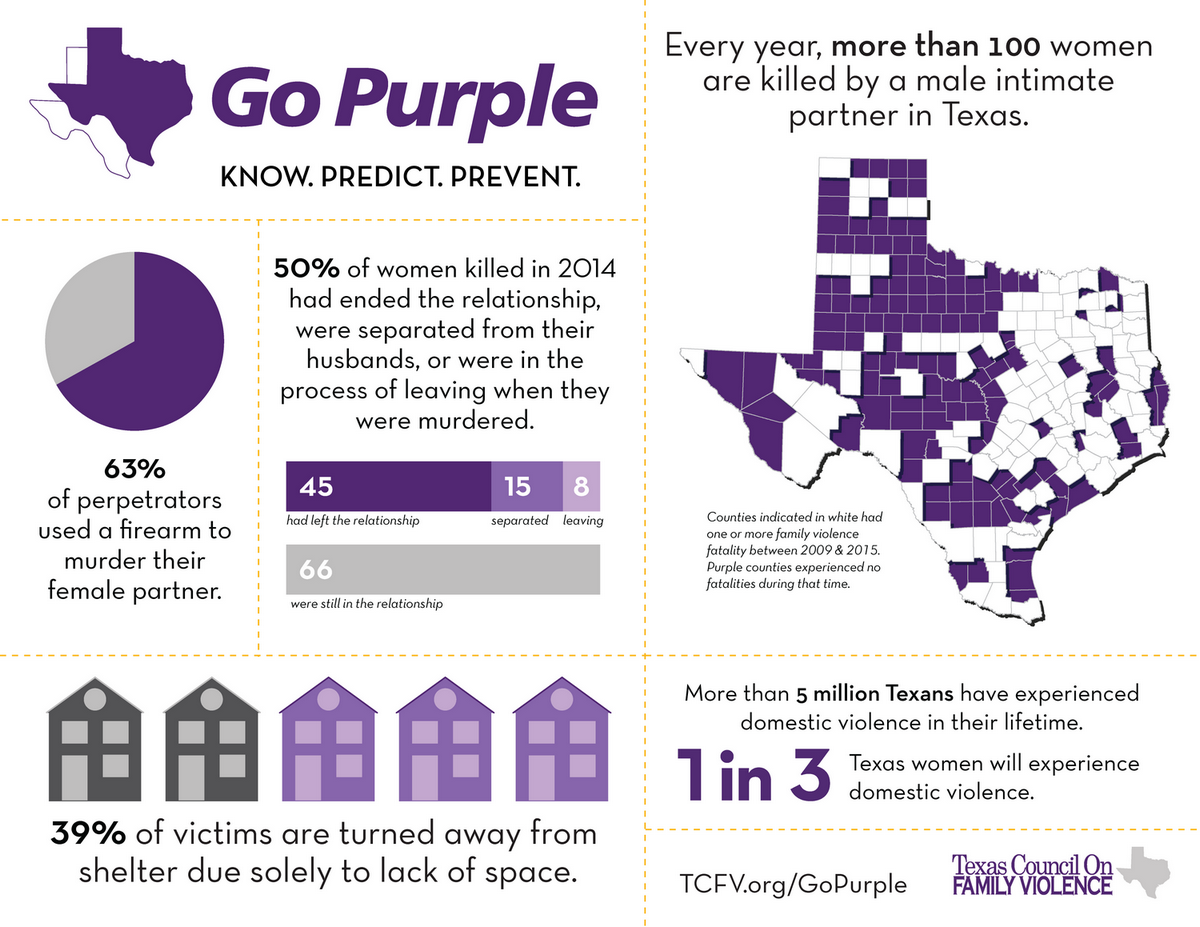When is Domestic Violence a Felony?
In Texas, domestic violence is generally defined as any act of violence committed against a family member, household member, or someone with whom the offender has or had a dating relationship. This can include physical abuse, emotional abuse, sexual abuse, or threats of violence.
When it comes to categorizing domestic violence as a felony or misdemeanor, Texas law takes various factors into account. The severity of the offense, the presence of aggravating factors, and the defendant’s criminal history all play a role in determining the charges and potential penalties.

In many cases, domestic violence offenses in Texas are charged as misdemeanors initially. However, certain circumstances can elevate the offense to a felony. These circumstances may include:
- causing serious bodily injury
- using a deadly weapon during the commission of the offense
- or having a prior history of domestic violence convictions.
Domestic violence charges can vary in severity, and the specific circumstances of each case will ultimately influence the charges filed. It is crucial to consult with legal professionals who specialize in domestic violence cases to ensure a comprehensive understanding of the legal implications specific to your situation.
Differences between Felony and Misdemeanor Offenses
Understanding the differences between felony and misdemeanor offenses is crucial when navigating the legal landscape, particularly when it comes to serious crimes like domestic violence. In Texas, the distinction between felony and misdemeanor offenses is based on the severity of the crime and its potential consequences.

Misdemeanor Domestic Violence
Misdemeanor offenses are generally less severe and carry lighter penalties. In Texas, domestic violence can be charged as a misdemeanor if the alleged act does not meet the criteria for a felony offense. Misdemeanor charges may still lead to jail time, fines, probation, mandatory counseling, and other court-ordered programs aimed at rehabilitation and preventing future acts of violence.
Felony Domestic Violence
A felony Domestic Violence offense is typically more serious than a misdemeanor and carries harsher penalties. In the context of domestic violence, a felony charge may be applied if certain aggravating factors are present, such as causing serious bodily harm, using a deadly weapon, or having a prior history of domestic violence convictions. Felony charges can result in significant prison sentences, hefty fines, and long-term consequences on personal and professional life.
Circumstances
It is important to note that the specific circumstances surrounding each case can impact how domestic violence is charged, and the classification may vary from one jurisdiction to another. Consulting with an experienced attorney who specializes in domestic violence cases is crucial for a comprehensive understanding of the legal nuances and potential outcomes in a particular situation.
Domestic Violence Laws in Texas
In an overview of domestic violence laws in Texas, it is important to note that domestic violence can be categorized as both a misdemeanor and a felony, depending on the severity of the offense and prior convictions. Generally, acts of domestic violence encompass physical harm, threats, or any form of abuse inflicted upon a family or household member.
Under Texas law, domestic violence cases involving bodily injury or the use of a deadly weapon are typically considered felonies. This means that the offender can face severe penalties, including imprisonment, fines, and the potential loss of certain rights.
The following are some of the key laws in Texas pertaining to domestic violence.
- Protective Orders: Family Code, Chapter 71: This chapter governs the issuance of protective orders (restraining orders) in cases of domestic violence, dating violence, or stalking. It defines the process for obtaining a protective order and the conditions and limitations that may be imposed.
- Assaultive Offenses: Penal Code, Title 5, Chapter 22: This chapter addresses various assaultive offenses, including assault, aggravated assault, and continuous violence against the family, which apply to situations where domestic violence occurs within a family or household.
- Offenses Against the Family: Penal Code, Title 5, Chapter 25: This chapter covers offenses related to family violence, including offenses such as abandoning or endangering a child, criminal nonsupport, and interference with child custody.
- Stalking: Penal Code, Title 5, Chapter 42A.505: This chapter deals with offenses related to stalking, which can be relevant in cases of domestic violence where stalking behavior is present.
- Weapons: Penal Code, Title 5, Chapter 46.06: This chapter outlines laws regarding the possession and use of weapons, including firearm restrictions for individuals subject to protective orders due to domestic violence or related offenses.
- Protective Orders: Code of Criminal Procedure, Chapter 7B: This chapter details the procedures for obtaining and enforcing protective orders, as well as the penalties for violating such orders.
- Crime Victim’s Rights: Code of Criminal Procedure, Chapter 56A.051: This chapter addresses bail regulations, including provisions for denying bail in certain domestic violence cases to protect victims.
- Lethality Assessment Program: Code of Criminal Procedure, Article 17.292: This article establishes a lethality assessment program to assess the risk of future domestic violence, which can aid law enforcement in providing appropriate assistance to victims.
- Emergency Protective Order: Code of Criminal Procedure, Article 5.04: This article allows magistrates to issue emergency protective orders to provide immediate protection to victims of family violence.
- Texas Family Violence Prevention and Services Act: This law addresses funding, resources, and support services for victims of domestic violence in Texas.
- Texas Council on Family Violence (TCFV) Model Policy: Though not a law, TCFV’s model policy offers guidance to law enforcement agencies on handling domestic violence cases effectively and consistently.
It is worth mentioning that Texas law also recognizes the importance of protecting victims of domestic violence through protective orders. These court-issued orders aim to safeguard victims by prohibiting the offender from making contact with or coming near the victim and their place of residence or work. Violating a protective order can result in serious consequences for the offender.
Defining domestic violence and its various forms
Defining domestic violence and understanding its various forms is essential to navigating the legal landscape surrounding this critical issue. Domestic violence refers to a pattern of abusive behavior in a relationship, typically involving intimate partners or family members. It can manifest in several forms, including physical, emotional, sexual, or financial abuse.

Physical abuse
Physical abuse involves any form of violence, such as hitting, kicking, punching, or using weapons, that causes physical harm or injury to the victim. Emotional abuse, on the other hand, aims to control, manipulate, or demean the victim through psychological tactics like intimidation, humiliation, or constant criticism.
Sexual abuse
Sexual abuse involves any unwanted sexual activity or coercion imposed upon the victim without their consent. It can encompass acts like rape, sexual assault, or any other form of sexual misconduct within the context of a domestic relationship.
Financial abuse
Financial abuse occurs when one partner exerts control over the other’s financial resources, restricting their access to money, employment, or basic necessities. This form of abuse can leave victims financially dependent and vulnerable to further mistreatment.
Penalties and Consequences for Texas Domestic Violence Offenses
In Texas, domestic violence offenses can be charged as either misdemeanors or felonies, depending on the severity of the act and the circumstances surrounding it. Misdemeanor offenses are generally less severe, while felony offenses carry more severe penalties and consequences.
For misdemeanor domestic violence offenses, the penalties can include fines up to $4,000, up to a year in county jail, or both. Additionally, the court may also impose mandatory counseling or intervention programs, probation, community service, and protective orders to ensure the safety of the victim.
An individual adjudged guilty of a Class A misdemeanor shall be punished by: (1) a fine not to exceed $4,000; (2) confinement in jail for a term not to exceed one year; or (3) both such fine and confinement. – Penal Code Chapter 12. Punishments
However, the offense can be elevated to a felony if it involves aggravating factors, such as:
- causing serious bodily injury
- using a deadly weapon
- or having previous convictions
Felony domestic violence offenses in Texas can result in harsher penalties, including larger fines, longer prison sentences, and a permanent criminal record.
For example, a third-degree felony domestic violence offense can lead to a prison sentence ranging from two to ten years and fines not exceeding $10,000. In more severe cases, such as cases involving strangulation or prior convictions, the offense can be enhanced to a second-degree felony, carrying even more severe penalties.
Prior Convictions
When a person has a prior family violence conviction, an enhanced penalty range may be applied if they are charged with domestic violence again. This means they can face Third Degree Felony charges instead of misdemeanor charges. Furthermore, under Texas law, if strangulation is alleged during the criminal act, police can charge the perpetrator with a Third Degree Felony on the spot—even if it is their first instance of domestic violence.
Strangling
In certain cases of domestic violence, strangulation can be alleged and the person can be charged with a third-degree felony right off the bat, even if they have never been convicted of family violence before.
Strangulation occurs when someone impedes the normal breathing or circulation of the blood of the victim by applying pressure to their throat or neck or blocking their nose or mouth. This can also include having one’s hand near the victim’s neck.
- An example of this would be if Jack and Sue were arguing and Jack grabbed Sue’s throat and slammed her against a wall, holding her until she stopped fighting back. As soon as Sue called the police to report this incident, Jack could be charged with strangulation and a third-degree felony due to the fact that he applied pressure to her throat/neck.
- Similarly, if Jack were to put his hand over Sue’s mouth while she was screaming to keep her quiet, he could be charged with a third-degree felony for blocking Sue’s mouth. No matter the form of the act of violence, it is still considered domestic violence and carries serious legal consequences.
Given the gravity of the penalties and consequences associated with domestic violence offenses in Texas, it is crucial to seek legal counsel if you are facing such charges. Additionally, if you are a victim of domestic violence, it is essential to reach out to local resources and support systems to ensure your safety and well-being.
Domestic Violence Enhancements
When it comes to domestic violence charges in Texas, there are certain factors that can elevate the offense from a misdemeanor to a felony. Understanding these factors is crucial for anyone seeking clarity on the legal landscape surrounding domestic violence in the Lone Star State.

One key factor that may lead to a felony charge is the severity of the violence inflicted on the victim. If the alleged act involves serious bodily injury, such as broken bones, disfigurement, or any harm that creates a substantial risk of death, it is more likely to be considered a felony offense.
The presence of a deadly weapon during the commission of the domestic violence incident can also escalate the charge to a felony. The use or threat of a firearm, knife, or any other object that can cause significant harm can dramatically impact the severity of the offense.
Another factor that may contribute to a felony charge is the prior criminal history of the individual accused of domestic violence. If the person has previous convictions for similar offenses or has a history of violence, it can result in enhanced penalties and an elevated charge.
The relationship between the parties involved can play a role in determining whether a domestic violence charge is a felony. If the alleged act occurs between individuals who share certain domestic relationships, such as spouses, ex-spouses, dating partners, or family members, it may be more likely to be treated as a felony offense.
It is essential to note that each case is unique, and the determination of whether a domestic violence charge is a felony ultimately lies in the hands of the legal system and the specific circumstances surrounding the incident. Consulting with an experienced criminal attorney who specializes in domestic violence cases is crucial for a thorough understanding of the applicable laws and potential consequences.
FAQ on Domestic Violence
What is the punishment for domestic abuse in America?
Domestic abuse is a serious offense and can result in criminal penalties. In the United States, misdemeanor domestic violence typically carries a jail sentence of up to one year and potential fines. Felony domestic violence can lead to prison sentences of two to ten years or even longer depending on the state.
What is considered felony domestic violence in California?
In California, a felony conviction for domestic violence includes intentionally causing or attempting to cause great bodily injury to a family member, inflicting corporal injury leading to the loss of consciousness, an attempt to commit a “serious” felony against a family member, or strangulation.
Is domestic violence a crime in the US?
Yes, domestic violence is a crime in all states in the US and is punishable by both civil and criminal penalties. It is important to understand that any form of violent behavior against a family member or household member is considered a crime.
What is the penal code for family violence in Texas?
In Texas, family violence laws are outlined in Chapter 22 of the state penal code. The laws cover violations related to assault, battery, interfering with an emergency call, stalking, harassment, and other forms of abuse.
What is a Class 3 felony in Texas?
A Class 3 felony in Texas is any felony that is not designated as a higher-level felony such as Class 2 or 1. Some examples include aggravated assault, kidnapping, burglary of a habitation, and aggravated robbery. These offenses carry penalties ranging from two to twenty years in prison and up to $10,000 in fines.
Is assault on a family member a misdemeanor in Texas?
Assault on a family member can be charged as either a misdemeanor or a felony depending on the details of the incident. Misdemeanor assault carries punishments such as up to one year in county jail and fines of up to $4,000.
What’s the lowest form of assault?
The lowest form of assault is usually referred to as simple assault and does not involve the use of any deadly weapon. Simple assault typically results in minor injury (if any) and carries punishments such as fines or low levels of imprisonment.
Is it illegal to hit a girl if she hits you first?
It is never legal to hit anyone regardless of who started the altercation. Even if someone attacks you first, you must take measures to protect yourself without resorting to physical violence.
Is mental abuse a crime in the US?
Mental abuse is not considered a criminal offense in most states but may still be considered a form of abuse under certain circumstances. Depending on the severity and frequency of the behavior, mental abuse could qualify as spousal abuse, domestic violence, or elder/vulnerable adult abuse.
What is the best defense for assault charges?
The best defense for assault charges depends on the particular circumstances and evidence available in your case. Some possible defenses include:
- lack of intent
- self-defense
- or necessity
It is best to consult with an experienced criminal defense attorney if you are facing assault charges.
Is smacking a phone out of someone’s hand an assault?
Smacking a phone out of someone’s hand could be considered assault if it causes physical harm or instills fear in the victim. This type of physical contact would meet the criteria for offensive touching which qualifies as assault under many state laws.
Is pushing someone away from you assault?
Pushing someone away from you could be considered assault if it meets the criteria for offensive touching set out by state laws. Generally speaking, if the pushing was done in a way that caused fear or physical harm then it would likely qualify as assault.
Which state has the highest domestic violence?
According to data from the National Domestic Violence Hotline, recent data has revealed that Oklahoma is leading all other states in the highest rate of domestic violence. Nearly half of all women and two out of five men suffer from some form of intimate partner violence in their lifetimes. This could include anything from rape, physical abuse, or stalking to financial control and emotional manipulation.
What are the 5 signs of emotional abuse?
Signs of emotional abuse can vary from person to person but may include:
- extreme jealousy and possessiveness
- controlling behavior
- insults or put-downs
- manipulation tactics like gaslighting or guilt-tripping
- isolation from friends and family.
What are the 4 main types of violence?
The four main types of violence are:
- physical violence (such as hitting)
- sexual violence (including rape)
- psychological (or emotional) violence (such as intimidation or threats)
- economic (or financial) violence (like withholding money).
Conclusion
It is crucial to understand the legal landscape surrounding domestic violence in Texas. Domestic violence is indeed a serious offense and can result in felony charges depending on the severity of the act. The state of Texas takes a strong stance in protecting victims and ensuring justice is served.
However, legal implications alone cannot solve the pervasive issue of domestic violence. It is imperative that we as a society take action to raise awareness and prevent such acts from occurring in the first place. Whether you are a survivor, a concerned citizen, or part of an organization working towards ending domestic violence, there are several ways you can contribute to this cause.
We hope this blog post has provided you with valuable insights into the legal landscape surrounding domestic violence in Texas. It is crucial to understand the legal implications and consequences associated with such acts. As we discussed, domestic violence can be considered a felony in certain circumstances, and it is essential to be aware of the specific laws and regulations in your jurisdiction. Remember, seeking help and support is of utmost importance if you or someone you know is a victim of domestic violence. Together, we can work towards creating a safer and more compassionate society for all.




